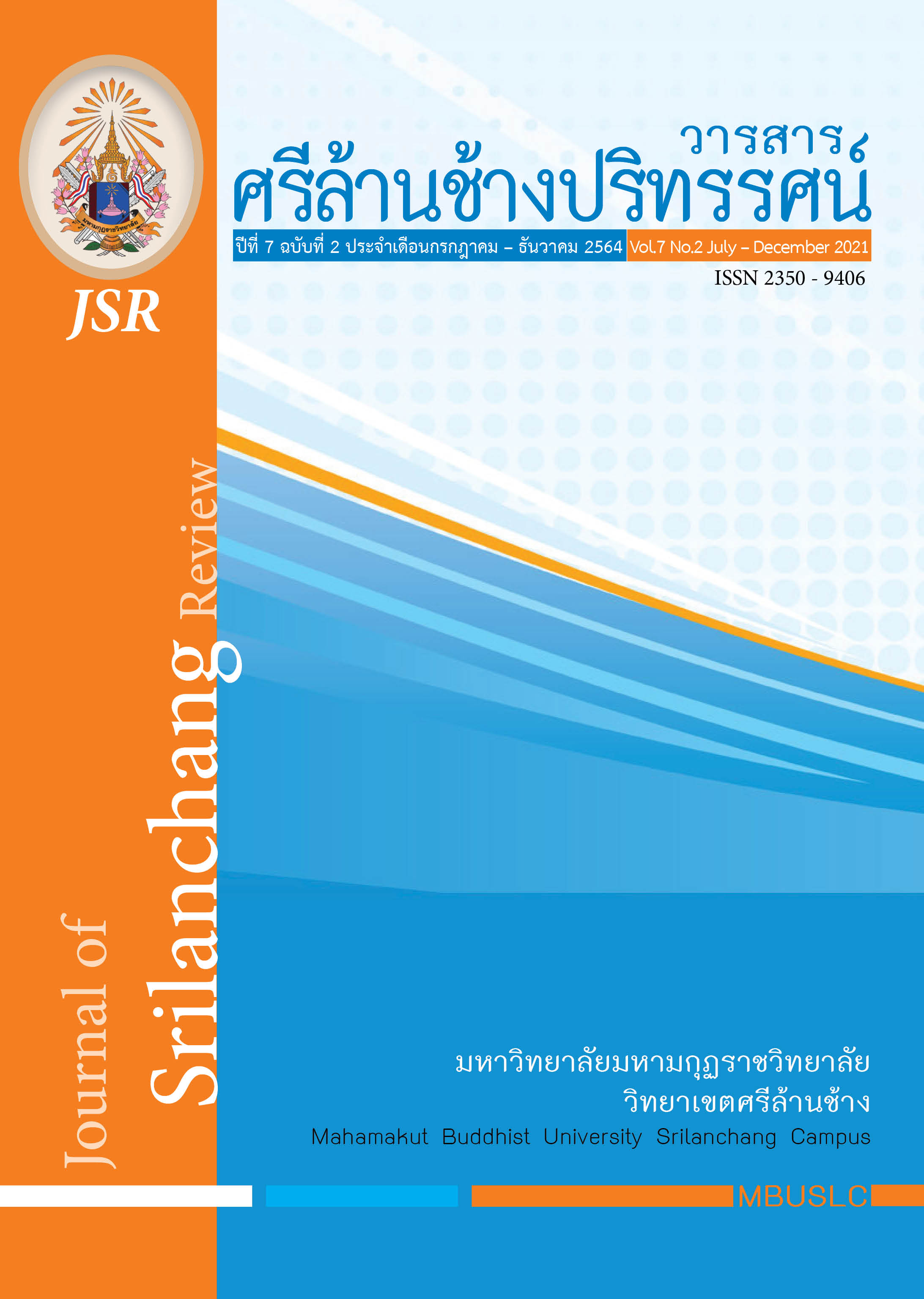GUIDELINES ON DEVELOPMENT OF INSTRUCTIONAL LEADERSHIP FOR 21ST CENTURY ADMINISTRATORS UNDER LOEI PRIMARY EDUCATIONAL SERVICE AREA OFFICE 2
Main Article Content
Abstract
The purposes of the research were to (1) study current conditions, desirable conditions and necessary needs of the guidelines on development of instructional leadership of the 21st century administrators under Loei Primary Educational Service Area Office 2, (2) to develop the guidelines on development of instructional leadership of the 21st century administrators under Loei Primary Educational Service Area Office 2, and (3) to assess the guidelines on development of instructional leadership of 21st century administrators under Loei Primary Educational Service Area Office 2. The research was conducted into three phrases. The first phrase was on the study of current conditions, desirable conditions, and necessary needs. The 308 samples of the research were 33 school administrators and 275 teachers, selected by Krejcie and Morgan’s table and the stratified random sampling. The research instrument used for data collection was the questionnaire with reliability of 0.81; the statistics used for data analysis comprised of frequency, percentage, arithmetic mean, standard deviation, and the priority needs index (PNI). The second phrase was on the development of the guidelines on development of instructional leadership of the 21st century administrators, consisting of two steps: the first step was on the multi-case study, in which the instrument used for data collection was the semi-structured interview; the second step was on the focus group discussion, by which the instrument used for data collection was the focus group note, and the data analysis was conducted by the descriptive statistics. The third phrase was on the assessment of the guidelines on development of instructional leadership of the 21st century administrators, in which the instrument was the criterian-referenced evaluation, and the statistics used for data analysis were arithmetic mean and standard deviation.
The research results were as follows: 1) The current condition was found to be overall at a high level (x̅ = 3.62, S.D. = 0.13), the desirable was found to be overall at the highest level (x̅ = 4.92, S.D.= 0.08), and the first priority needs index comprised of the teaching supervision and the teaching assessment (PNIModified = 0.58). 2)The guidelines on development of instructional leadership of the 21st century administrators consisted of five factors. 3) The assessment of the guidelines on development of instructional leadership of the 21st century administrators was found to be overall at the highest level (x̅ = 4.90, S.D. = 0.23).
Article Details

This work is licensed under a Creative Commons Attribution-NonCommercial-NoDerivatives 4.0 International License.
บทความที่ได้รับการพิจารณาจากคณะกรรมการผู้ทรงคุณวุฒิและเผยแผ่ในวารสารฉบับนี้ เป็นทัศนคติและข้อคิดเห็นส่วนบุคคลของผู้เขียนแต่ละท่าน ไม่ถือว่าเป็นทัศนะคติและความรับผิดชอบ
ของบรรณาธิการ
บทความ ข้อมูล เนื้อหา รูปภาพ ฯลฯ ที่ได้รับการตีพิมพ์ในวารสารศรีล้านช้างปริทรรศน์ ถือเป็นลิขสิทธิ์ของวารสารศรีล้านช้างปริทรรศน์ หากบุคคลหรือหน่วยงานใดต้องการนำทั้งหมดหรือส่วนหนึ่งส่วนใดไปเผยแพร่ต่อหรือเพื่อกระทำการใด ๆ จะต้องได้รับอนุญาตเป็นลายลักอักษรจากวารสารศรีล้านช้างปริทรรศน์ ก่อนเท่านั้น
References
ณัฐวุฒิ จันทร์โสภา. (2558). การวิเคราะห์ความต้องการจำเป็นในการพัฒนาภาวะผู้นำของผู้บริหารโรงเรียน. วิทยานิพนธ์ครุศาสตรมหาบัณฑิต. กรุงเทพฯ: จุฬาลงกรณ์มหาวิทยาลัย.
บุญชม ศรีสะอาด. (2553). การวิจัยเบื้องต้น. พิมพ์ครั้งที่ 8. กรุงเทพฯ: สุวีริยาสาส์น.
วิศวะ ผลกอง. (2562). ภาวะผู้นำทางวิชาการในศตวรรษที่ 21 ของผู้บริหารโรงเรียนมัธยมศึกษา สังกัดสำนักงานเขตพื้นที่การศึกษามัธยมศึกษา เขต 1. วิทยานิพนธ์ศึกษาศาสตรมหาบัณฑิต กรุงเทพฯ: มหาวิทยาลัยธุรกิจบัณฑิตย์.
สำนักงานเขตพื้นที่การศึกษาประถมศึกษาเลย เขต 2. (2562, 27 ธันวาคม). แผนปฏิบัติการประจำปีงบประมาณ พ.ศ. 2563. เลขที่ 1/2563.
สำนักเลขาธิการสภาการศึกษา (2560, มีนาคม). แผนการศึกษาแห่งชาติ พ.ศ. 2560-2579. อันดับที่ 10/2560.
อุไรวรรณ ศรีศักดิ์. (2560). การพัฒนาโปรแกรมการเสริมสร้างภาวะผู้นำทางวิชาการของผู้บริหารสำหรับสถานศึกษา สังกัดสำนักงานเขตพื้นที่การศึกษาประถมศึกษากาฬสินธุ์ เขต 2. วิทยานิพนธ์ศึกษาศาสตรมหาบัณฑิต. มหาสารคาม: มหาวิทยาลัยมหาสารคาม.


